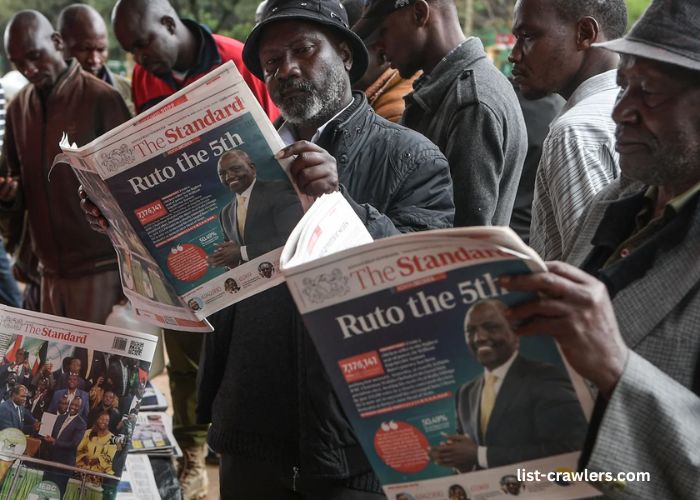A Call for a More Balanced Narrative
For decades, mainstream media has shaped how the world sees Africa. Sadly, much of this coverage relies on stereotypes. It focuses on poverty, disease, and conflict. It ignores the continent’s diversity, strength, and progress. These narrow stories distort reality. They create harmful misconceptions. This affects how the world engages with African nations. But guess what? A growing movement is pushing back. It bet on a more balanced and truthful story.
The Persistent Stereotypes in Media
Mainstream media often treats Africa as one place. It ignores that the continent has 54 countries. Each has its own culture, history, and economy.
Common Stereotypes
- The “Hopeless Continent” Narrative The Economist popularized this term in 2000. It suggests Africa is defined by instability and corruption. While challenges exist, this view is misleading. Many nations have made progress in governance, infrastructure, and the economy.
- The Perpetual Humanitarian Crisis News often shows Africa through famine, drought, and disease. These problems are real, but they lack context. Global factors like climate change and trade policies play a role. Foreign interventions also contribute to these crises.
- War and Conflict as the Defining Features Some nations have faced political turmoil. But this is not Africa’s whole story. Many countries are strengthening democracy and building peace. Communities are working toward stability.
- Lack of Modernization and Development Media often ignores Africa’s cities and innovations. It overlooks advancements in technology, finance, and healthcare. Many African nations lead in fintech, renewable energy, and creative industries.
- Wildlife Over People Documentaries highlight Africa’s animals and landscapes. They often neglect its cities and cultures. Conservation is important, but so are the people shaping the continent’s future.
The Impact of These Stereotypes
Key Impacts
- Global Perception and Policy Stereotypes shape how governments, businesses, and NGOs see Africa. Many believe the continent is unstable. This leads to less investment. A focus on charity over trade slows sustainable growth.
- Tourism and Economic Opportunities Many investors and tourists see Africa as dangerous or underdeveloped. This discourages travel and business. Local economies suffer. The cycle continues as nations struggle to attract global interest.
- Psychological Effects on Africans Africans, especially in the diaspora, face negative stereotypes. Constant exposure to these images takes a toll. Some may feel inferior. Others struggle with national pride.
Challenging the Narrative: Media and Grassroots Initiatives
Despite these challenges, change is happening. Many people and organizations are reshaping Africa’s image. They are working to tell a more accurate story.
African Media Houses Leading the Change
Local media is changing the narrative. These organizations tell Africa’s stories with authenticity.
Outlets like The Daily Maverick (South Africa), The Nation (Kenya), and Premium Times (Nigeria) focus on investigative journalism. They cover politics, the economy, culture, and social movements.
Platforms like Africanews offer a broader view. They report on global and regional issues from an African perspective. This challenges the narrow focus of Western media.
Filmmakers and Content Creators Rewriting the Script
Africa’s film industry is booming. Nollywood, based in Nigeria, is the world’s second-largest by volume.
Films from Nigeria, South Africa, Kenya, and Ghana tell diverse stories. They go beyond suffering and hardship. They explore romance, comedy, history, and modern life.
Streaming platforms are taking notice. Netflix now invests in African content. Shows like Blood & Water (South Africa) and Queen Sono (Netflix’s first African original) showcase new perspectives. These stories break outdated stereotypes.
Afrofuturism and the Power of Representation
Afrofuturism is on the rise. It blends African culture with science fiction and fantasy.
Films like Black Panther (2018) brought this vision to the world. The movie showed Africa as advanced and culturally rich. Wakanda may be fictional, but it sparked real conversations. People discussed African innovation, identity, and potential.
Writers are also leading this movement. Authors like Nnedi Okorafor and Tade Thompson are changing the narrative. Their stories challenge Western stereotypes and offer new visions of Africa.
Social Media as a Tool for Rewriting the Narrative
Social media is changing the narrative. Africans are using it to reclaim their stories.
Hashtags like #AfricaRising and #TheAfricaTheyNeverShowYou highlight progress. They showcase tech startups in Lagos and fashion in Dakar.
Creators are also shaping the conversation. Influencers, photographers, and travel bloggers share Africa’s beauty and culture. Platforms like Instagram and YouTube give them a voice—unfiltered by Western media.
Tech and Innovation: Africa’s Growing Digital Economy
Africa’s economy is growing fast. Technology and entrepreneurship play a big role.
Cities like Nairobi, Lagos, and Cape Town are emerging as tech hubs. They attract investors from around the world.
Innovations are transforming industries. Kenya’s M-Pesa has changed mobile banking. Startups in energy, healthcare, and e-commerce are making a global impact.
Tech incubators are also rising. Programs like Andela and MEST are training the next generation of innovators.
The Role of Global Media in Changing Perceptions
International media plays a role too. It must provide balanced coverage of Africa.
Some outlets are making progress.
- BBC’s Focus on Africa covers more than just crises.
- CNN’s Inside Africa explores culture, business, and innovation.
- The New York Times and The Guardian now cover African politics, arts, and economy with more respect.
These are steps forward, but more work is needed. Africa deserves to be shown with depth and dignity.
The Future of Africa’s Narrative
Changing Africa’s image is not just about headlines. It is about shifting mindsets.
Authentic voices must be heard. Supporting local media is key. International news outlets must be held accountable.
Africa is not a single story. It is diverse, dynamic, and always evolving.
Challenges exist, but they do not define the continent. No region is defined by struggles alone.
The true story of Africa includes both hardships and triumphs. Its past and future deserve to be told with honesty and respect.







